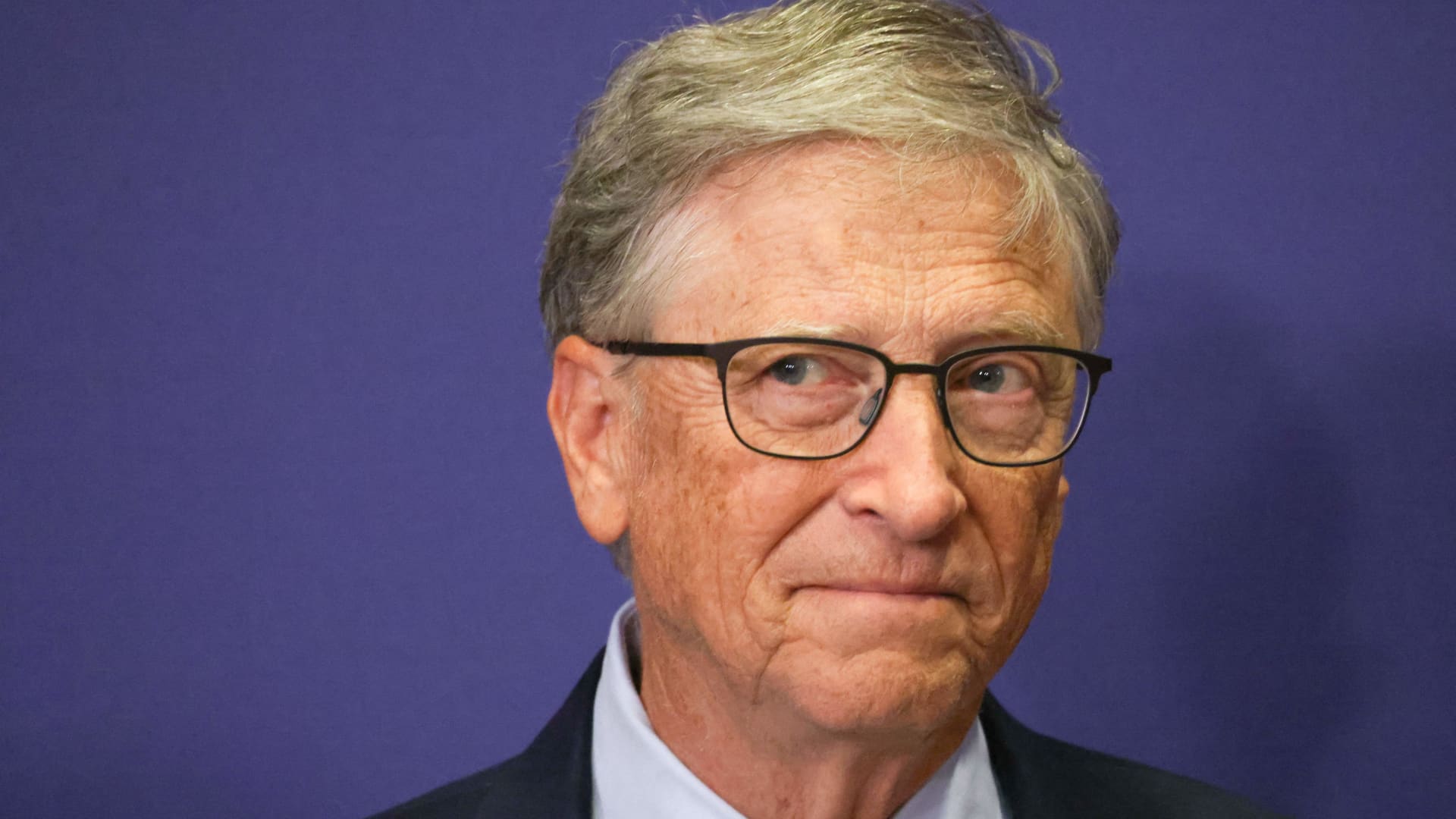Dubai, UNITED ARAB EMIRATES — Billionaire philanthropist Bill Gates on Friday said the world is likely to overshoot a critical temperature threshold that scientists have long warned could bring dangerous and potentially irreversible impacts on people, wildlife and ecosystems.
Speaking to CNBC’s Tania Bryer in the United Arab Emirates at the COP28 climate conference, Gates said he was “definitely glass half-full” when it comes to the climate crisis and that he was optimistic the Dubai summit could help to drive progress.
However, the Microsoft co-founder said any headway in the climate fight would likely not be enough to prevent 2 degrees Celsius of global warming.
His comments come as policymakers and business leaders convene in Dubai for the United Nations’ biggest and most important annual climate summit. It is widely regarded as a pivotal opportunity to accelerate climate action at a time when the world is on track to record its hottest year on record and as extreme weather events take their toll across the globe.
“There is not some binary cut-off where at a certain temperature everything is horrible,” Gates said on Friday.
“We are going to have warming, likely above our goals and that’s where adaptation comes in to say ‘OK, because of this warming what can you do that is very inexpensive, like better warning systems for bad weather events or better weather data to help farmers know when to plant’.”
Gates said it would be imperative to help the poorest adapt to human-induced climate change and to try to minimize damage to ecosystems, such as coral reefs.
“Fortunately, we’ve made enough progress that we’re not going to have the extreme cases like of 4 degrees [Celsius] warming, but we’ll sadly probably even miss the 2-degree goal. So, we’ll have adaptation as a priority,” Gates said.
At COP28, countries will assess for the first time exactly how far off track they are to meeting the goals of the landmark Paris Agreement. The 2015 accord aims to “limit global warming to well below 2, preferably to 1.5 degrees Celsius, compared to pre-industrial levels.”
The world has already warmed by around 1.1 degrees Celsius, scientists say, after over a century of burning fossil fuels as well as unequal and unsustainable energy and land use.
‘A very dynamic situation’
In the run-up to the Dubai climate conference, the United Nations Environment Programme warned that current pledges under the Paris Agreement put the world on track for up to 2.9 degrees Celsius of warming above pre-industrial levels. UNEP said its findings reaffirmed the urgent need for increased climate action.
The U.N. has previously said it is the 1.5 degrees Celsius threshold that is considered to be the “upper limit” if humanity is to avoid the worst of what the climate crisis has in store.
Asked about how he reflected on the challenges for future generations in the context of the climate crisis, Gates replied, “Well, there is a lot of amazing things coming through human innovation, better medicines, A.I. that can help tutor kids on various things.”
“At the same time, you know we have polarization, we have climate change and so it’s a very dynamic situation,” he continued. “Overall, I see a lot of positive things, but we do need to prioritize avoiding those negatives because we want not just our children but many generations to come to have an even better life than we do.”
